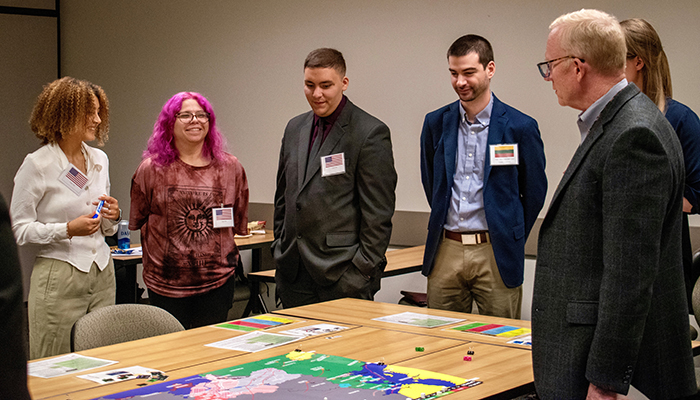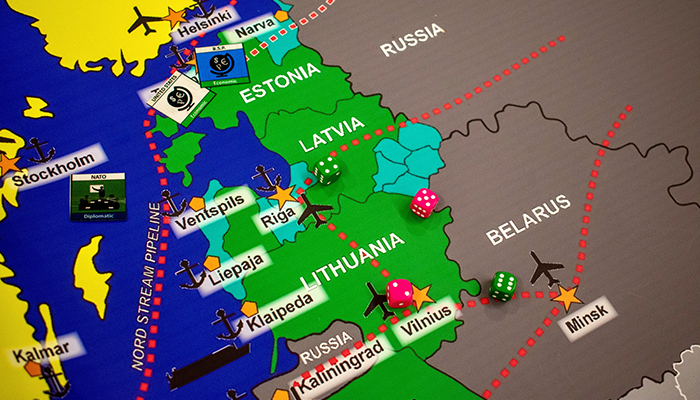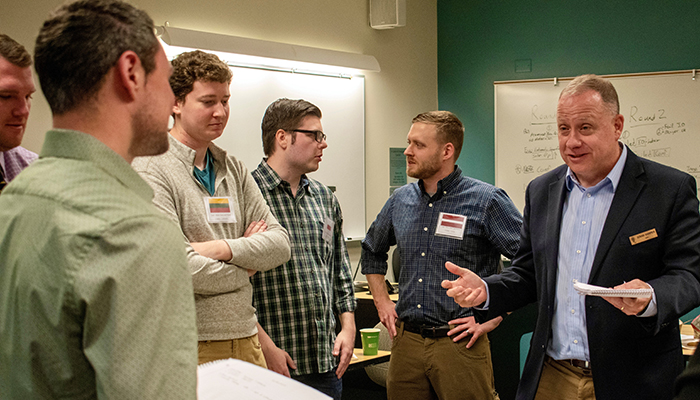
Dangerous turmoil brews in an Estonian separatist state, one supported by an aggressive Russian minority in the region. Surrounding nations are concerned about an outbreak of conflict, but what’s the best way to respond while ensuring individual rights, defending democracy, dealing with a refugee crisis, and protecting the energy grid?
That was the fictional situation facing about 45 participants in an October Baltics 2028 Simulation hosted by the Schar School’s Center for Security Policy Studies and facilitated by members of the U.S. Army War College. The daylong event challenged participants to apply their knowledge of foreign policy and strategy in an effort to thwart—or at least predict—possible outcomes of a realistic crisis.
It may have looked like an elaborate board game, but the perceived danger was realistic and the correct decisions were vital, said participants.
“It was very insightful and I learned a lot about collaborative decision-making and strategy during a geopolitical crisis,” said Master of International Security student Sebastian Evans. “I highly recommend Schar School students to attend simulations in the future. An excellent event and I am very glad I attended.”


